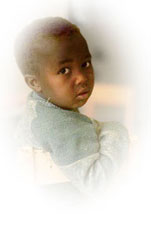Israel Studies Track
A diverse program exploring Israeli society and culture from a range of disciplines, including anthropology, history, literature, political science, and sociology, contextualizing the study of Israel from the standpoint of Jewish history and within the modern Middle East.
Requirements: At least six courses selected from the list below including two years of Hebrew, one survey course, one Middle East context course plus two electives. Students are strongly encouraged to study in Israel for at least one semester. UF-approved Study Abroad transfer credit may be used towards the certificate. Courses taken within the track typically count for credit in other majors or minors.
- Language (two) (Hebrew may be replaced with Arabic by petition).
- Modern Hebrew, 1st year (HBR 1120) and 2nd year (HBR 2200)
- Survey (one)
- Politics in Contemporary Israel (CPO 4000)
- Israeli Culture
- Israeli Society (SYA 4930/JST 3930) pdf (28 kb).

- Israel in the Middle East (one)
- Arab-Israeli conflict (CPO 4001/JST 3930)
- Israel/Palestine
- History of the Modern Middle East
- Politics of the Modern Middle East
- Electives (two)
- Faulkner in Israel (HBR 4930/LIT 3173/JST 3930/FAC 127)
- History of Zionism
- Identity and Dissent in the Hebrew Short Story
- Introduction to modern Hebrew literature (HMW 3200)
- Israeli Cinema
- Israeli History and the Contemporary Novel (HBT 3233)
- Israeli Literature in Translation (HBT 3110)
- Israeli Women and Politics (POS 4931)
- Jews and Arabs in Modern Hebrew Literature (HBR 4930)
- Messianism in Modern Jewish History
- Post-Zionism: Ideology and Literature
- Religion, Law, and Politics: Israel in comparative perspectives (POS 4931/JST 3930)
- Women in Modern Hebrew Fiction (HBT 3563)
Faculty teaching and advising in the Israel Studies track:
Michelle Campos (History)
Malka Dagan (African and Asian Languages and Literature)
Mitchell Hart (History)
Tamir Sorek (Sociology)
Kenneth Wald (Political Science)
Patricia Woods (Political Science)